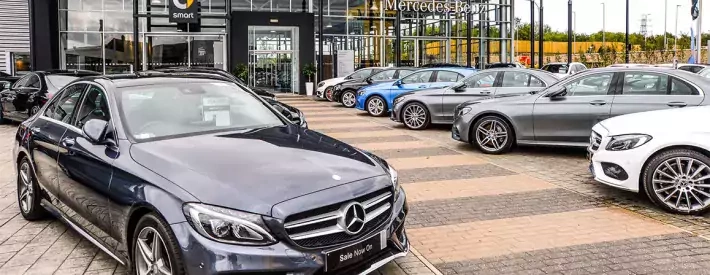Q&A: JCT600’s Katie Saunders

Group HR Director Katie Saunders explains why JCT600 is so focused on continued training and developing and adapting apprenticeships to the pandemic
How do you find the best and brightest talent?
We use our internal recruitment manager who’s always seeking ways of reaching new candidates with different skills and backgrounds. We have a partnership with Drive My Career which solely reaches the 17–23-year-old audience, we also work with military organisations to recruit ex-forces colleagues and we regularly speak to schools and colleges to influence students toward our varied roles early in their career planning.
Our employer brand is well known through Yorkshire, Lincolnshire, Derbyshire and the North East so our website, which we constantly refresh, is never short of strong applicants.
What are the key education and training requirements for people entering JCT600?
Apprentices clearly have to have attained the minimum exam grades to qualify for the many and varied programmes we offer via our manufacturer partners and our own internal apprenticeships. Other than that, we deliberately try and recruit for personality, values and the unique qualities that candidates bring as we believe that through our trainee, learning and development programmes we can train the skills. Our culture’s based on valuing people for what they bring to a team and our company. The desire to deliver great service digitally, over the phone or in person is obviously key for us.
How many apprenticeships do you carry out?
We actively recruit up to 50 apprentices each year into technical, parts, sales, bodyshop, finance and customer service roles, and we encourage those apprentices to develop their careers long-term with us. Our retention rate for apprentices is 92%.
Why do you place so much emphasis on training and development?
We’ve always believed that by recruiting and growing our own talent, we can achieve higher colleague engagement and lower turnover, and this has proved to work for us. We have a talent programme called Wired which is deeply embedded into our culture and provides personalised development for those who want to progress, getting them ready for junior management roles. Many of our ambitious apprentices are nominated for this programme once qualified.
What impact did the COVID-19 pandemic have on apprenticeships?
We recruited before and after each lockdown and found creative ways of bringing apprentices back from furlough to learn in different parts of the business. Once the second lockdown happened, we set up ‘at work bubbles’ to allow apprentices to work with their mentors to enable their qualifications to continue.
How are you managing the new skill-set required for the switch to electrified vehicles?
In addition to the obvious crucial EV High Voltage Technical Training programmes run by our manufacturer partners, and JCT600 having EVA Accredited centre status (or having Battery Repair Centre status), we are encouraging technicians to undertake available ‘expert’ programmes.
In sales, we very much steer away from obsessing about ‘selling’ techniques and focus much more on being a source of reliable information (given the volume of mis-information) for both colleagues and customers, using all channels of social media to develop this.
What leadership development programmes do you run?
Along with our Wired programme, we run three levels of leadership development for our managers. This starts with a basic ‘essentials’ set of skills modules for newly appointed managers, followed by a more advanced leadership programme that’s focussed on leadership skills practise involving projects and peer to peer feedback. In addition, our high potential leadership programme focuses completely on emotional intelligence leadership, it’s run in the Lake District and is experiential. All of these programmes have run for over five years and, again, have ensured our managers can fulfil their potential by growing and being promoted internally. Our management turnover has decreased dramatically over the past seven years.
What’s your key focus for the next six months?
Along with workplace flexibility, we’re hugely focussed on wellbeing given the impact of the previous 12 months, and we have many colleagues that need additional support. We have a proactive programme that ranges from one-to-one health and nutritional coaching, and seminars on specific areas of self-care (such as managing stress or anxiety), to working closely with the mental health charity Ben and providing various health and fitness classes for our colleagues.




